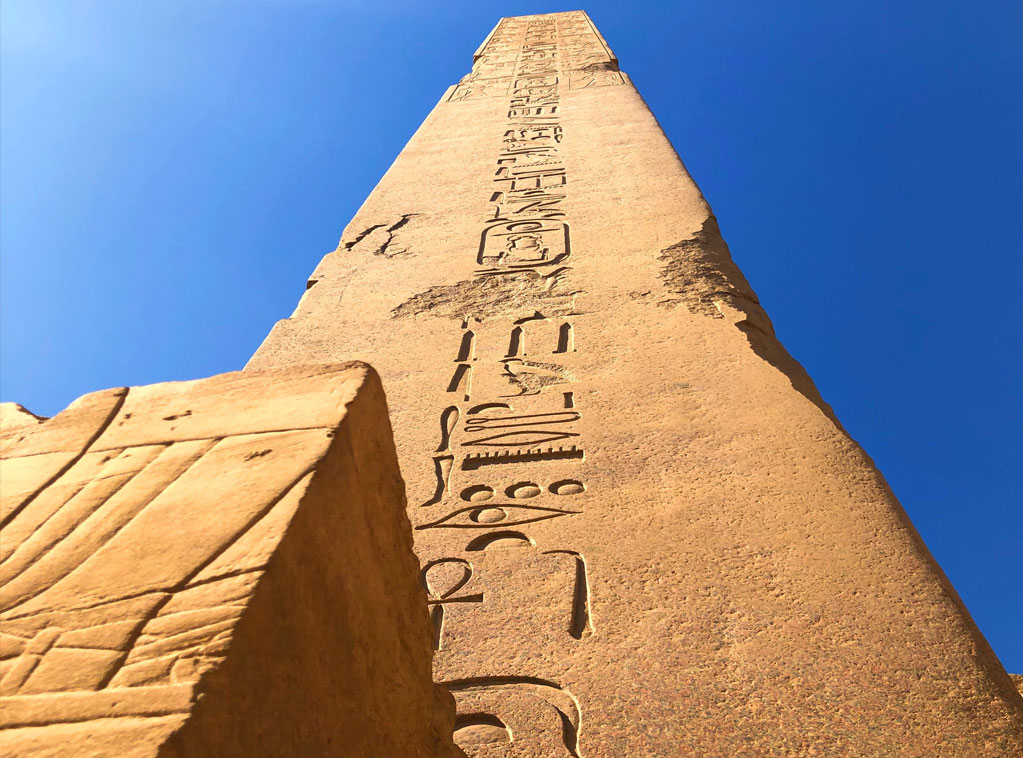By using our website, you agree to the use of cookies as described in our Cookie Policy
The Proven Weapon
A few years ago, a friend and I were visiting one evening on the shores of the Red Sea in Jordan. Actually, it was closer to midnight, and we were smashing Egyptian god images, and burning papyri with images of Egyptian goddesses. My friend had discovered them tucked away in a cabinet in his home, and decided that it was time for them to go.
I gazed down the shoreline. I knew that just a few miles south of where we were saying goodbye to his former guests, an event transpired centuries ago that involved real Egyptian gods and goddesses, and the Israelites they held captive for generations.
In my mind’s eye, I could see the hissing asp of Pharaoh as it slithered down the corridors of Egypt’s desert mountains to strike its prey, and devour the destiny of the fleeing Israelites. They and their leader, Moses, were sited precariously at the Red Sea. Retreat was not an option, as a bloody battle would certainly end in ultimate defeat. And rushing forward into the sea seemed to offer even less hope. A decision of life and death must be made quickly.
Moses convinced a few hundred thousand men and their families to follow him into the wilderness. More accurately, by engaging Pharaoh and the gods of Egypt, he left his travelers little choice in the matter; it was either flight or fight. And so, they fled behind him into the wilderness and the perilous predicament where they now found themselves - all dressed up and nowhere to go. They were stuck between a rock and a hard place, or more precisely, an angry, hissing Pharaoh and the waters of the Red Sea.
The horses’ hooves of Pharaohs army pounded in the ears of the Israelites. Even the least discerning among them could see that all was not good, and soon to get worse. Accusations flew: "As Pharaoh drew near, the sons of Israel looked, and behold, the Egyptians were marching after them, and they became very frightened; so, the sons of Israel cried out to the LORD. Then they said to Moses, “Is it because there were no graves in Egypt that you have taken us away to die in the wilderness? Why have you dealt with us in this way, bringing us out of Egypt? Is this not the word that we spoke to you in Egypt, saying, ‘Leave us alone that we may serve the Egyptians’? For it would have been better for us to serve the Egyptians than to die in the wilderness.”
Moses responded to their accusations in the opposite spirit, and it reveals why he was their leader. He sought to shift their focus from the obvious Pharaoh-challenge to Yahweh, their solution, and thus from fear to faith: “Do not fear! Stand by and see the salvation of the LORD which He will accomplish for you today; for the Egyptians whom you have seen today, you will never see them again forever. The LORD will fight for you while you keep silent.”
Wow, what awe-inspiring words, spoken as if from the lips of a military hero. However, I wonder if, after releasing these words, Moses paused for a moment and had a private conversation with Yahweh. Sometimes words, even great words, are more easily spoken than acted upon. “Do not fear! Stand by and see the salvation of the Lord…!” I can almost hear Moses ask God: “OK…those do-or-die words are out there now…what’s up? How are you going to do this…and please, can you do it quickly, because I told them you would do it today?”
I don’t think Moses was ready for what he heard: "Why are you crying out to Me?"
It would have been easier if Yahweh had simply parted the sea before Moses arrived. Why did he have to complicate the situation with the ‘faith-factor’ thing?
I’ve often wondered how I would have responded in a similar situation where the Israelites found themselves. The sea did not automatically part, it required a faith-action on behalf of a human individual. Some versions of this story state that Moses had to first step into the water before the sea parted. Wow! Can you imagine? What if it didn’t part? Would I just keep on walking and bury my fear-filled shame beneath the waves of the sea? Or, would I turn around, walk back on shore, and before hundreds of thousands who depended on me, say: “Oops!”
Fortunately, there was more to Yahweh’s response, and these words are where I want to focus for a minute, because this is where the rubber meets the road, or more accurately, where the staff meets the sea.
"Tell the sons of Israel to go forward. As for you, lift up your staff and stretch out your hand over the sea and divide it, and the sons of Israel shall go through the midst of the sea on dry land."
So, the more complete message that Yahweh spoke was: “Why are you crying out to Me? As for you, lift up your staff…” The instant Moses heard those words, “Lift up your staff,” it activated the faith necessary for his victory and that of the hundreds of thousands who followed him to the Red Sea shoreline. In that moment, Moses’ faith became the substance of what the Israelites needed.
So why were those four words such a big faith-raising deal? Because they reminded Moses that he carried a “proven weapon” into battle. You see, “Lift up your staff” was an echo of the earlier “weapons test” he passed in the courts of Pharaoh. The staff-turned-snake drama with Pharaohs magicians was more than just an entertaining power display, it was an object lesson and a prophetic foreshadowing of how Yahweh was going to use Moses’ staff to devour the hissing asp of Pharaoh on the shores of the Red Sea.
So, what is the lesson for us? This is the season of preparation; Yahweh is preparing you for the journey ahead, the one spoken of by the Prophets Isaiah, Jeremiah, Ezekiel, Daniel and Hosea. He is going to bring you from the far countries of the world, through the wilderness and into the Land he has promised you. While the weapons of your warfare are not carnal, they are still weapons. And like Moses staff, they must be proven. It is time to watch and listen, and to heed what you hear Yahweh saying to you while you are yet in the courts of Pharaoh, or the Far Country. You must watch for the staff, or weapons that Yahweh will put into your hands, and test them now.
So, that if, like Moses, and your fleeing forebears, Yahweh leads you to a Red Sea crossing, and you hear the pounding of horses hooves, you can rest assured that He has already provided the way of escape. You must lift your staff as a weapon already proven in the courts of Pharaoh, and wave it. The sea will part and make your way of escape, and once you’ve crossed safely,
“Stretch out your hand again over the sea so that the waters may come back over the Egyptians, over their chariots and their horsemen.”
With the sea behind you, you can now move forward with the cloud by day and the pillar of fire by night. And don’t forget your staff!
‹ Back








Comments